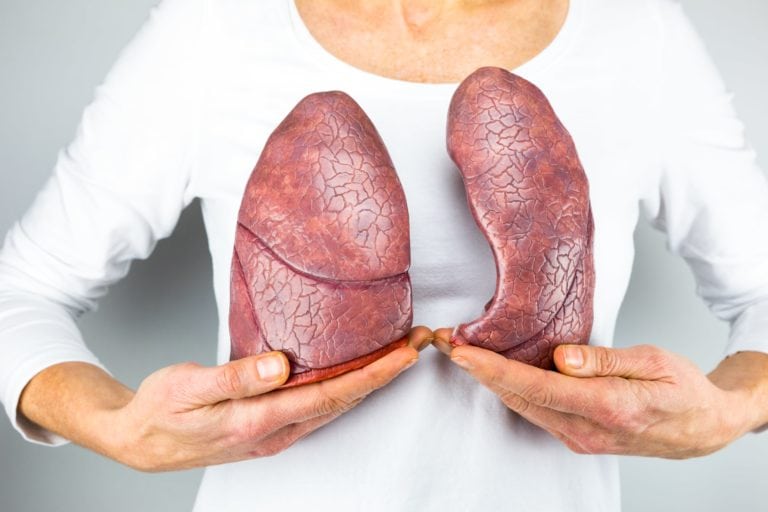
The idea of a Lung Volume Reduction Surgery may seem ludicrous to those with healthy lungs, but for those who are experiencing complications from diseases like severe emphysema symptoms like disabling dyspnea and air trapping, may warrant that this surgery is performed.
These conditions are treated by experts in the cardiopulmonary field, and LVRS is just one way that the complications can be mitigated.
What Is Lung Volume Reduction Surgery?
Lung Volume Reduction Surgery, or LVRS, is a surgery that removes diseased portions of the lung that are impacted by emphysema. As a chronic obstructive pulmonary disease or COPD, emphysema can result in severe shortness of breath and a condition where the air is trapped in the lung as a result of the disease. When an LVRS is performed those diseased portions of the lung are removed, making it possible for the remaining healthy lung to grow and expand naturally in the process of breathing.
What Causes Emphysema?
Emphysema is caused by the inhalation of airborne pollutants, with smoking being a major factor contributing to its occurrence. Patients with emphysema experience damaged air sacs, or alveoli, in the lungs, a condition which leads to the rupturing of the inner walls of the air sacs and the creation of large internal air spaces. This damage has the functional result of reducing the available surface area of the lung, an element of your lung’s function that aids the transmission of oxygen into your bloodstream. Further, these damaged alveoli don’t properly expel air, causing pockets of stale air and a reduction in the space available for fresh air.
Am I a Candidate For Lung Volume Reduction Surgery?
There are a number of factors that determine whether or not you’re a candidate for LVRS, all of them dependent on the specifics of your condition. There are four different kinds of patients who may qualify for LVRS, and each type has different factors to take into consideration.
- Those with low exercise capacity and upper lobe emphysema – These patients tend to respond positively to LSVR, with extended lifespans and improved lung function resulting. These patients are the ones with the highest success rates.
- High Exercise Capacity, Upper Lobe Emphysema – This group also tends to perform better after LVRS than after medical treatment.
- Low Exercise Capacity, Emphysema that’s diffuse – medical treatment and LVRS show similar success rates in these patients.
- High Exercise Capacity and Diffuse Emphysema – Medical treatment is superior for these patients to LVRS, making them poor candidates for the procedure.
Those patients who are in the first category are the ones most likely to benefit from this treatment. If you’re wondering if you’re a candidate for LVRS contact your physician and speak to them regarding your condition. They’ll do an assessment and send you to a specialist if they determine that you may benefit from having LVRS performed. Don’t let life slip by being short of breath and suffering from the trials of emphysema, contact your physician today!

